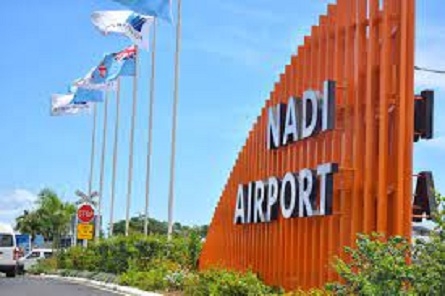‘Bula Vinaka’
| Date :16-Oct-2022 |

THE first words which fell on my ears the moment I landed at Nadi Airport in Fiji were ‘Bula Vinaka’ meaning ‘good life’ and ‘thank you’ in Fiji. A group of men dressed in tropical pattern shirts with hats on their head and guitar in hands could be seen welcoming passengers with a song containing the above words. The day I was informed by my boss that I had to visit Fiji for official purpose, I started looking for the place on the world political map. As I was struggling to locate the country, one of my colleagues with a penchant for geography was kind enough to point it out for me on the map.
I had to stretch myself to the extreme right-hand side where the words ‘Fiji’ were inscribed in the smallest fount. There was no space on the map beyond it and there was nothing but ocean from Singapore till Fiji. A more concerted search on Google and Wikipedia revealed that Fiji is an island in Melanesia part of Oceania in the South Pacific. Cursing my luck for being delegated to visit the extreme end of the world, I began my journey with a heavy heart. After a gruelling flight of more than 15 hours via Singapore, I finally landed. Just 30 minutes before the arrival, we were informed by flight attendants to open our window shades slowly since we would be transitioning from darkness into light suddenly without much time gap.
As I adjusted my gaze to the light, the first glimpse of a coral reef island woke me from my stupor. It was as if I was watching a nature show on Discovery channel, only to realise that this was real. The pristine beauty of the islands with picture perfect landscape and blue corals took my breath away. I could not believe that lady luck had finally smiled on me. I completely forgot that I was booked in a resort by the name ‘Toka Toka,’ and started madly inquiring about ‘Teka Teka’ drawing curious looks from people around. Out of the blue, I heard someone asking me in Hindi, “Kaha Jana Hain- Toka Toka resort.”
Directly in front of me, I saw an Indian gentleman standing beside his SUV. It was only after my interaction with Ram Sharan ji that I realised, Fiji has a sizeable number of Indian population brought by the British in the year 1878 for sugarcane farming on the island. Fiji comprises of indigenous Fijians, Indo Fijians and Rotumans. For the better part of my stay from that point onwards I met and interacted with numerous Indo Fijians with a strange feeling that none of them had ever visited India the country of their origin. I was pleasantly surprised to find an Indigenous Fijian singing bhajans in Hindi and occasionally, I would come across people speaking Tamil and Bhojpuri. Over so many years of socialisation, all the three ethnic groups have developed a language of their own. My journey to the islands of Nauru, Noumea, Samoa and Tarawa (an island which witnessed one of the bloodiest battles between US and Japanese forces during world war) was equally exciting and intriguing. It is fascinating to experience the lives of people who stay on islands surrounded by coral reefs and mountains.
